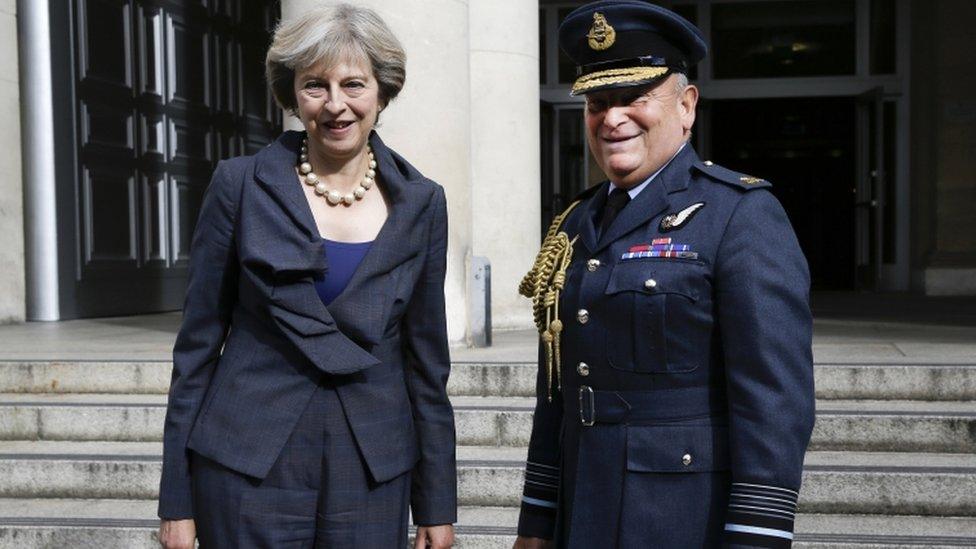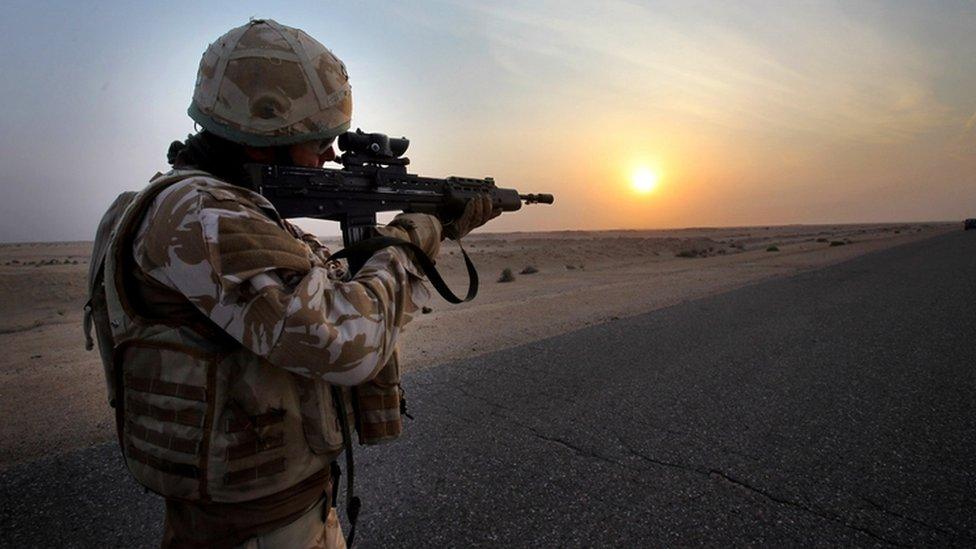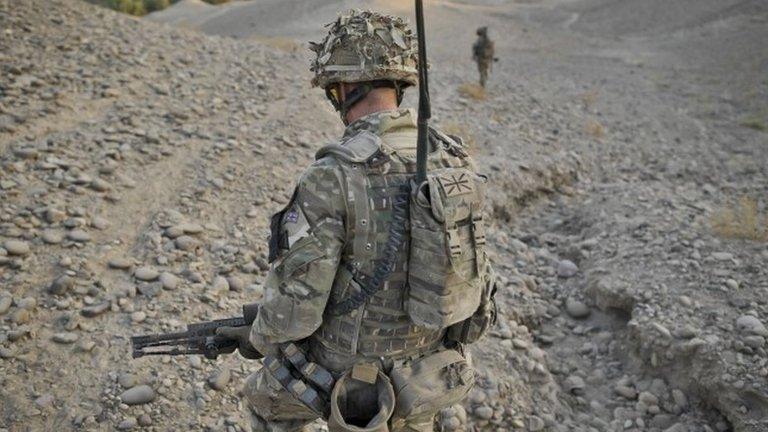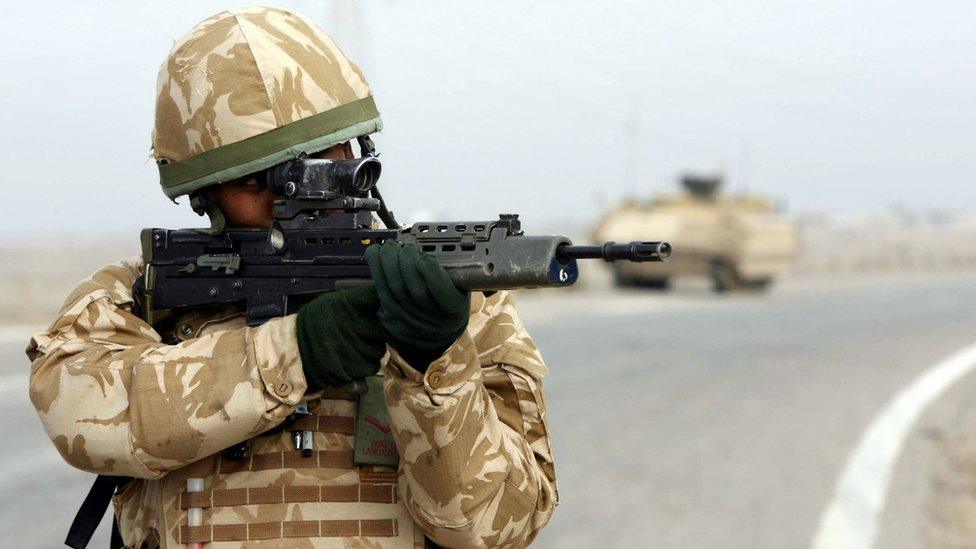Theresa May: Troops must be protected from legal system abuse
- Published

Theresa May met the Chief of the Defence Staff Air Chief Marshal Stuart Peach and other senior military officers
Every effort must be made to stop the legal system being abused over allegations of serious misconduct by UK troops, Theresa May has said.
The PM told defence chiefs she is determined to stop "vexatious" claims being brought against the armed forces.
Two separate inquiries are examining about 2,000 allegations against troops who served in Iraq and Afghanistan.
An MoD source said steps were being taken to prevent spurious complaints and reduce the number of cases.
Former soldiers have claimed they have been hounded through the courts on unfounded claims and there are growing calls for the Iraq Historic Allegations Team (IHAT), which investigates claims of murder and abuse by British soldiers in Iraq, to be shut down.
Mrs May raised the issue during her 90-minute meeting with Chief of the Defence Staff Air Chief Marshal Sir Stuart Peach, the heads of the Royal Navy, Army and Royal Air Force, and senior civil servants.
She also discussed the fight against so-called Islamic State, also referred to as Daesh, and the migrant crisis in the Mediterranean.
'Debt of gratitude'
Mrs May said: "The men and women of our armed forces do an incredible job, often making huge sacrifices to keep us safe.
"Whether taking the fight to Daesh in Iraq and Syria, helping to tackle the migrant crisis in the Mediterranean or providing flood relief at home - we owe them a huge debt of gratitude."

One of the cases before IHAT involves the death of a 19-year old Iraqi in a waterway near Basra 13 years ago.
Three current and former servicemen who were cleared of wrongdoing over the teenager's death have now been told they may face prosecution.
One of them, who wished to remain anonymous while under investigation, previously told the BBC: "The reality of 21st-century warfare is now that anyone in the world, even our enemies, can make any allegation against British forces, no matter how absurd, and the British government and Army will stand and watch in utter indifference as it destroys their lives and careers.
"The Army has surrendered its own powers of discipline and investigation to a private company and betrayed its finest people to protect itself from scrutiny at the highest levels."
He said the Army's top staff had sacrificed junior ranks to protect themselves.
He added that the Army should write to those being investigated by IHAT and state, up to the point of a guilty verdict: "We are with you, you are one of us, and we will support you to the end".
This would be "simple common decency", he said.
Abuse allegations
MP Johnny Mercer, a member of the Commons Defence Select Committee who is heading an investigation into IHAT, branded the legal pursuit of troops "a national disgrace" and called for the team to be axed.
Established in November 2010, IHAT was set up to investigate allegations of murder, abuse and torture of Iraqi civilians by UK military personnel between 2003 and 2009.
The claims, external range from ill treatment during detention to assault and death by shooting.
The team has considered at least 1,514 possible victims, external - of whom 280 are alleged to have been unlawfully killed.
But a spokesman for IHAT said it intended to reduce the number of ongoing investigations to 250 by January 2017 and to 50 by the end of next year.
He said it was working to "weed out allegations where there isn't a case to answer or where it is not proportionate to conduct a full investigation".
Large numbers of similar allegations will also be grouped together and dealt with as single investigations, he added.
Earlier in the year, former Prime Minister David Cameron also voiced an intent to stamp out what he described as "spurious" legal claims against British troops.
Meanwhile, an independent policing unit set up to investigate alleged war crimes by UK troops in Afghanistan has received about 600 complaints.
The Ministry of Defence said 150 people had made claims of ill-treatment between 2005 and 2013.
It said any "credible claims" of criminal activity should be investigated.
- Published22 September 2016

- Published21 September 2016
